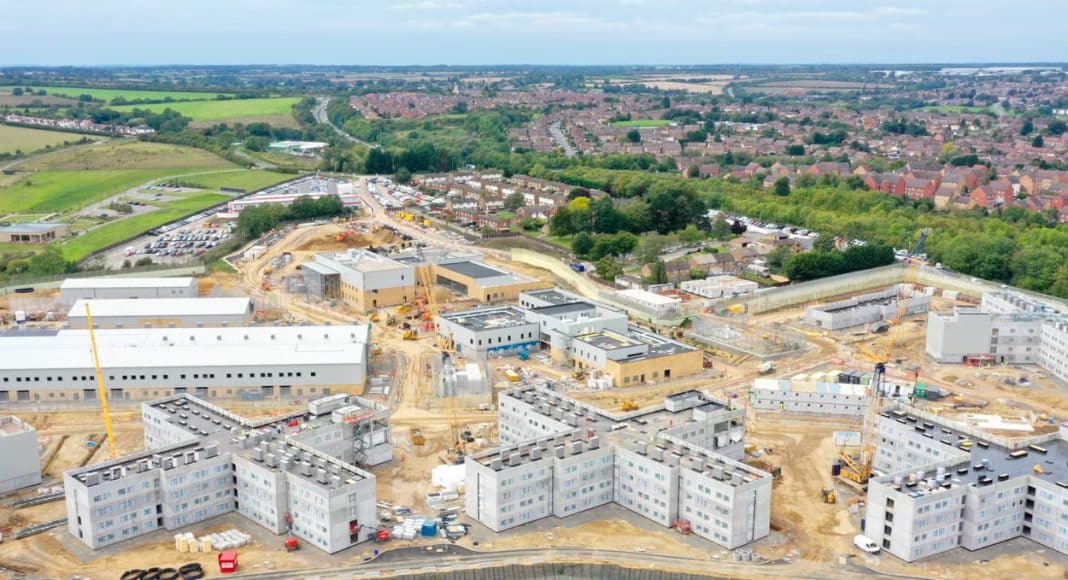Over the past four decades Britain’s prison population has massively increased as successive government have used a ‘tough on crime’ narrative to appeal to the tabloid-fuelled politics of a section of voters, while hugely expanding the prison industrial complex, to the enrichment of private contractors such as G4S and Serco, who manage many institutions on behalf of the state. The resulting penal population rates in Britain are among the highest in Western Europe. Over 87,000 people are currently imprisoned in England and Wales, an increase of over 40,000 since 1993. This is projected to increase by 3,000 annually, potentially reaching 100,000 by the end of the decade.
What actually drives this massive expansion of the prison population is not increased levels of crime, and in fact estimates from the Crime Survey for England and Wales show there has been an overall decline in incidents of crime since 2017. What actually drives this mass incarceration of the most disadvantaged and marginalised of the working class is an intention to increase the punitive role of the capitalist state in an increasingly class-divided and unequal social and economic environment. A consequence of the ‘tough on crime’ agenda is that prisons are bursting at the seams with prisoners crowded into cells in degrading and dehumanising conditions.
Continual crisis
The problem that the state faces is that this overcrowding crisis impacts on its ability to imprison yet more people. It was therefore forced last year to free up some prison places via an early release scheme. However, this has had little or no overall effect and the entire system remains in crisis.
The response of Keir Starmer’s Labour government in October 2024 was to commission an independent Sentencing Review to examine how prisons had become so full and consider ways to ease the overcrowding. On 10 February 2025 the Review, chaired by former Conservative Justice Secretary David Gauke, published Part 1 of its report, entitled History and Trends in Sentencing.
The report describes how ‘Over the last 25 years, the political landscape has been increasingly dominated by a “tough on crime” narrative that has focused on longer imprisonment. In tandem, politicians have implemented legislative and policy changes which have inflated sentencing.’ It goes on to explain how this continuing knee-jerk reaction of ever-lengthening sentences has created the current situation, despite ‘long-term trends suggesting overall crime in England and Wales may be decreasing’. This escalation has, in turn, been fed by ‘media narratives’, which focus on ‘atypical cases’ and which feed the erroneous understanding that sentences are getting shorter, rather than longer and the overall system is becoming less, rather than more punitive.
On 18 February Gauke told the BBC that the last 30 years have seen ‘something of a bidding war between political parties as to who is prepared to lengthen sentences the most. As a consequence, we’ve seen our prison population essentially double over that time.’
An unreformable system
The Review has had significant input from various prison reform groups and other so-called ‘stakeholders’, which presumably will be further reflected in the next section of the report, when recommendations for change will be set out. Many of these groups focus on recommending that the population of prisoners could be reduced by looking at ‘tough alternatives to custody’, putting forward such views as that ‘community-based penalties can be both punitive and rehabilitative’ (the Law Society).
The reformists’ proposed solution to prison overcrowding is to extend the carceral influence of prisons into the communities themselves, especially the most socially deprived and marginalised communities whose people are already the main target of the criminal justice system. Such superficial changes will have little effect on a system which is essentially unreformable, and which has always been driven by the need of capitalism to subdue and control the disobedient working class. This is reflected by the Labour government’s introduction of a new Police Bill, just weeks after the publication of the first part of the Sentencing Review report (see article on p2). While the government talks about rethinking sentencing, new measures in both the Crime and Policing Bill and the Border Security, Asylum and Immigration Bill (see p3) will result in even greater pressure on the prison system.
The reality is that, despite massively overcrowded prisons in a state of meltdown, the Labour government today is no different to that of Tony Blair, which in 1997-2010 created the Indeterminate Sentence for Public Protection and the Anti-Social Behaviour Order. True to this tradition, whatever superficial ‘reforms’ are implemented at the conclusion of the Sentencing Review, Labour will continue to bang the ‘law and order’ drum and to cram yet more of the ‘anti-social’ working class into penal institutions.
John Bowden
FIGHT RACISM! FIGHT IMPERIALISM! 305 April/May 2025




